Marks Hornet – African American Soldier from Elizabethville
Posted By Norman Gasbarro on April 22, 2016
In the 1860 Census of Washington Township, (Post Office Elizabethville), Dauphin County, Pennsylvania, there appears a family identified in the “Color” column as “m” for Mulatto. The head of the family was Marks Hornet, a 38 year-old laborer. He indicated to the census that he was born in Pennsylvania, that did not own any real property, that the value of his personal estate was $50, and that he could not read or write. In his household was Matilda Marks, age 26, presumably his wife, and Irena Marks [or possibly Frances Marks?], a 6 month old child, presumably his daughter. Their neighbors were the Thomas J. Ferree family and the Joseph K. Wagner family on one side – and the Solomon Rudisill family and the William Snyder family on the other side. Catharine Bechtel, a 73 year old blind spinster was also a neighbor; she was enumerated in the Rudisill household. A portion of that census page, from Ancestry.com, is shown below.
The exact location of the Hornet household in Washington Township can be determined through county tax records by finding the Thomas J. Ferree property and the Solomon Rudisill property, both of which were owner occupied. The Pennsylvania Archives also has maps for 1858 and for 1862.
The cut shown above from the 1858 map identifies the location of three of the Hornet neighbors: Solomon Rudisill, Joseph Wagner, and J. T. Free, or Thomas J. Ferree. Berry Mountain is shown running across the bottom of the map and the Lykens Valley Railroad runs horizontally across the center of the map. The road along which the properties seem to be located is the current Route 225, which by heading south and west, arrives in Halifax Borough. The road which runs from the left center of the map, slightly north and east, is the current Route 209, which if followed east, goes through Loyalton (then Oak Dale) and Lykens Borough. From the 1858 map, it appears that the the Hornet family lived at or very near the location where the 1858 Elizabethville Railroad Station was built. It could also be that the Hornet family was renting from Joseph Wagner, who on the map is noted as “J. Wagner Travelers Rest.” Could it be that Marks Hornet was a laborer for the railroad?
The cut shown above from the 1862 map identifies the location of three of Hornet’s 1860 neighbors: Solomon Rudisill, Mrs. Bechtel (presumably the Spinster Catharine Bechtel), and Thomas Ferree. Again, the location of the neighbors seems to suggest that Hornet Marks lived in the location of the railroad station in 1860.
Hornet Marks has not yet been located in the 1863 Draft Registration. He would have been required to register because of his age. He would not have been excluded or excused because of his race.
Hornet Marks has been located in the 24th United States Colored Troops records for Company C. He enlisted as a Private at Chambersburg, Franklin County, on 16 February 1865. The regimental documents note that he was a “substitute” for Jacob Kauffman of Bedford County, Pennsylvania, and was credited to the 16th Congressional District of Pennsylvania. Elizabethville and Washington Township were part of the 14th Congressional District, so at the time of his enrollment in the Colored Troops, he (and his family) were living in a different part of Pennsylvania.
A “Muster and Descriptive Roll” Index Card, shown above from Fold3, confirms Hornet’s service in the 24th United States Colored Troops. He gave his age as 34 (he was probably closer to 38) and his occupation as laborer. He had black eyes, black hair, a yellow complexion, and he stood 5 foot, 6 inches tall. Another card (not shown) gave his birth place as Virginia. The available records also show that he served honorably and was discharged at Richmond, Virginia, on 1 October 1865.
A brief history of the 24th United States Colored Troops notes that the regiment was trained at Camp William Penn in Philadelphia up to May 1865, then moved to Camp Casey near Washington, D.C., where it was stationed until 1 June 1865 when it was assigned to guard prisoners at Point Lookout, Maryland, and then re-located to Richmond in September 1865 until its discharge on 1 October 1865.
The regiment saw no military fighting action during the war, but nevertheless, all of its members who received honorable discharges were eligible for pensions – particularly after 1890, when the pension rules were relaxed to allow “old age” to be a legitimate reason for the awarding of a pension. Since no record has been located that Marks Hornet ever applied for a pension, it could be assumed that he died before 1890, although nothing has yet been located to confirm that. Also, no widow applied, which could mean that Matilda Hornet died before Marks, or if she survived him, that she re-married and was therefore ineligible because she had means of support.
Current efforts to find Irena Marks or her parents in censuses after 1860 have also come up blank.
For his service in the 24th United States Colored Troops, Marks Hornet is named on the African American Civil War Memorial in Washington, D.C. However, he is not named on any Civil War memorial in the Lykens Valley area and his name has not been included in any local community’s list of Civil War veterans. Because he lived and worked in Elizabethville/Washington Township in 1860, as documented by the U.S. Census, he should be included in the list of Elizabethville area Civil War veterans and he should be recognized in the Bicentennial Celebration in 2017.
Additional information is sought on Marks Hornet and any possible descendants. Please submit comments to this blog post or send to the Project via e-mail.
Note: There are possible connections with other African Americans from the Lykens Valley area who also served in the same regiment, including John Peter Crabb, an African American who was born in Gratz and who later became Commander of the Colored G.A.R. Post in Harrisburg (Stevens Post No. 520).
——————————————-
The photo card pictured at the top of this post is from the Library of Congress. It shows the flag of the regiment including its motto, “Let soldiers in war be citizens in peace.”
 ;
;
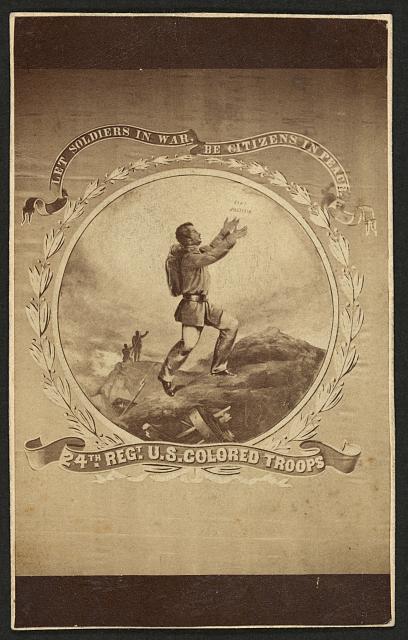
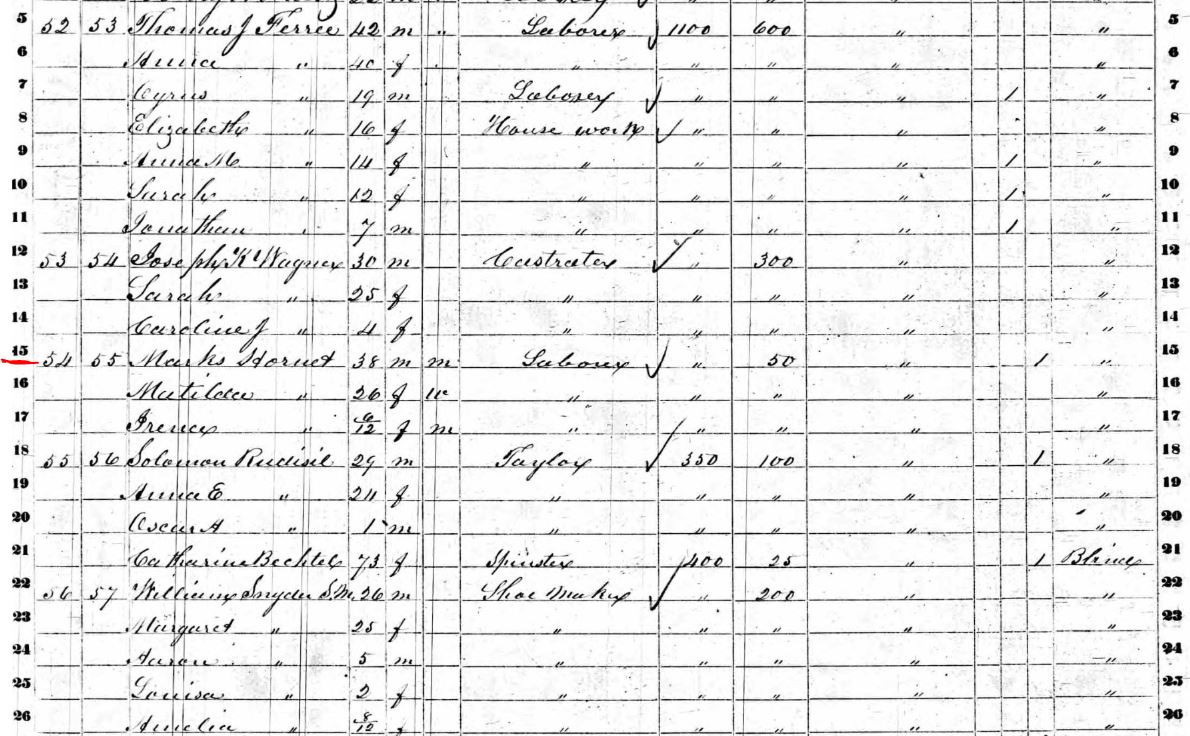
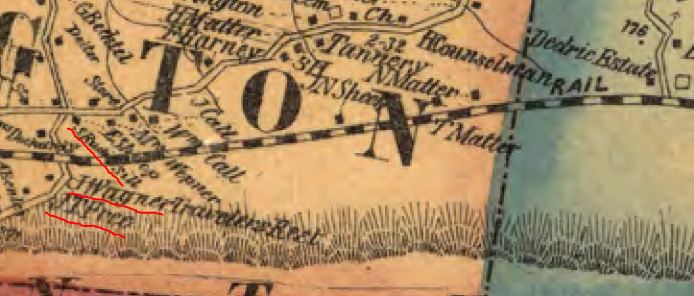
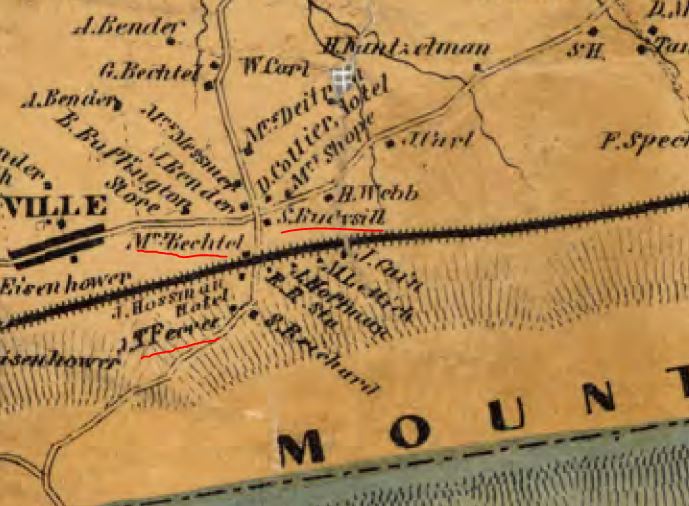
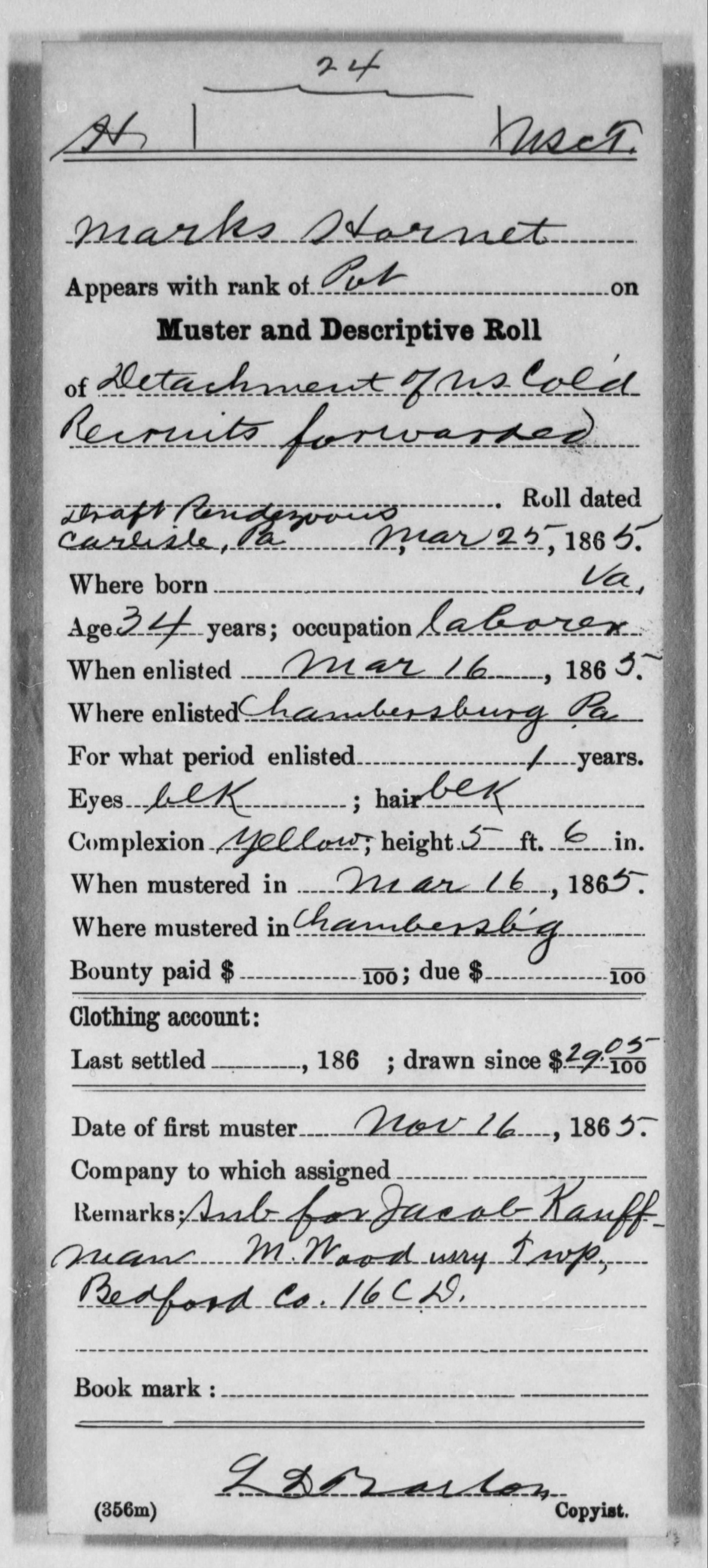


Comments